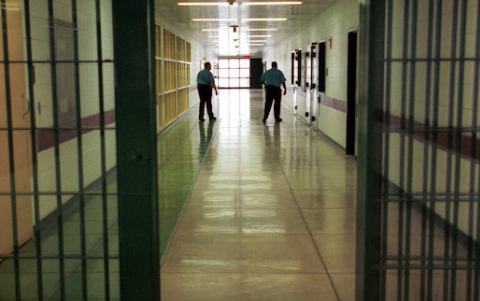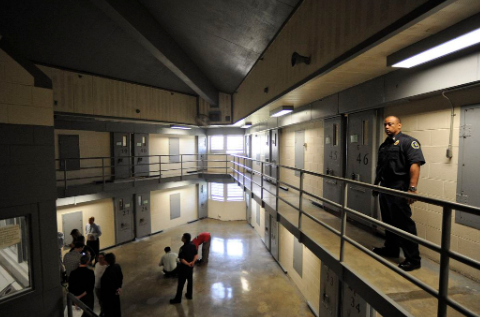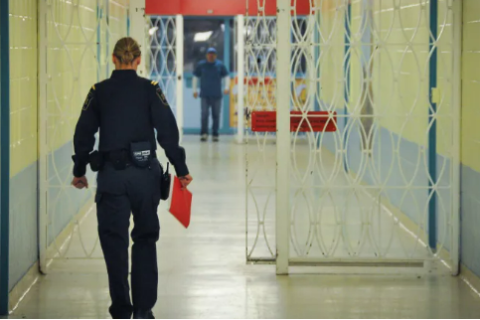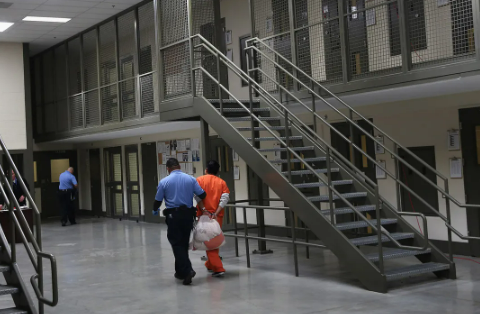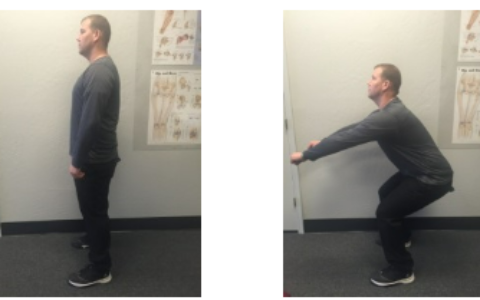Do you want to be a correctional officer? If yes, before you decide to work as a correctional officer, you may want to know some pros and cons of being a correctional officer. You are able to read the pros and cons below.
Pros of Being a Correctional Officer
Let’s take a look at the pros of being a correctional officer according to the Career Trend, Indeed and Becomeopedia.
- Salary and Benefits
According to the Career Trend site, the annual salary of a state correctional officer is $38,380 and for Federal positions, the average annual salary is $53,459. Besides salary, correctional officers are also allotted a clothing allowance which they use for buying their uniforms. Another benefit is that they receive state health benefits at a low cost. They are able to retire when they are 50 years old with 20 years of employment or at any age with 25 years of service. State corrections officers get sufficient sick days and vacation time. As also explained on the Career Trend site, the amount of time off each correctional officer is entitled to increase with every year of service. - Job Security
There is a rising amount of crime in our nation which means that there will not be downsizing for correctional officers. Between 2008 and 2018, employment of correctional officers is projected to grow 9%. Every year, new prisons are built to be able to accommodate the large number of inmates. Therefore, the new job opportunities as a correctional officer are opened. On the Career Trend site, it is explained that in local jails, correctional officers admit 13 million people a year and oversee the 800,000 offenders which are held in jails. On that site, it is also explained that correctional officers in state and federal prison facilities guard 1.6 million offenders. - Activities
When you become a correctional officer, you will work with people from various backgrounds and situations and you will also stay active in your job duties. It is because you will have to remain alert for the whole shift. As also explained on the Indeed site, if you work as a correctional officer, it can help you to develop your physical stamina, decision-making skills and self-discipline. - Value
As a correctional officer, you have to ensure the health and safety of the inmates that you supervise. You also help them on their journeys to rehabilitation, offering advice and guidance to the inmates who are in vulnerable positions or awaiting trial. So, it is about the value that you provide for them. - Work Hours
In a lot of jobs, you may work outside of work hours. After working hours, you may still have to answer emails or take some paperwork home. If you work as a correctional officer, after you walk out the front gate of the prison, your work is done. There is no more job that you have to do outside of work hours and there is no unpaid overtime as explained on the Becomeopedia. - Career Pathway
As explained on the Becomeopedia site, there are not many options for promotion if you are a correctional officer. You are able to become a lieutenant or a supervisor. However, if being a correctional officer is a stepping stone for you to work for law enforcement, it can be a good job. If you want to be a drug addiction counsellor, psychologist, social worker or a lawyer, being a correctional officer can be great for your resume. - Being Hired Is Easy
If you want to be a correctional officer, you do not need any work experience or education beyond a high school diploma. You will do a bit of on-the-job training where you will be paid for this, but it depends on the system of the prison. This job can be great for you who do not have any skills or training or higher education because you can be hired quickly with decent benefits.
Cons of Being a Correctional Officer
And here are some cons of being a correctional officer according to the Career Trend and Becomeopedia.
- The training is long
As a correctional officer, you will get initial training which is long. Generally, correctional officers who are newly recruited will receive instruction in a number of subjects such as regulations and operating procedures, institutional policies, and also general custody and security standards. New correctional officers who work in federal facilities have to undergo 200 hours of formal training in the first year of employment. 120 hours of specialized training in the U.S. Federal Bureau of Prisons residential training center at Glynco, Georgia, must be completed by them within 60 days since they are appointed to a facility. For experienced officers, they have to attend annual in-service training to keep informed about new developments and changing procedures. - Danger
To ensure the safety of staff at facilities, there is precaution. However, still becoming a correctional officer is dangerous. According to the Career Trend site, every year, there are correctional officers who are injured in physical altercations with inmates. If there are violent offenders, they can be a threat not only for other inmates, but also for the officers. Because of the nature of their job, this position has very high statistic rate of alcoholism, suicide and depression. - Working Conditions
Correctional officers do not only work indoors, but also outdoors and they work in all weather conditions and climates. Some correctional facilities have good lighting, controlled climate and are ventilated. However, many correctional facilities which stand to be outdated, hot, loud and overcrowded. - Working Holidays and Shifts
Of course, prisoners must be guarded 24/7, so new correctional officers may work odd shifts and it includes all hours of the day and night and also on holidays. They usually work eight hours in a day, days a week, in shifts which are rotating constantly. - Boring Job
Being a correctional officer may be a boring job. It is because you will have to do the similar tasks repeatedly such as checking that every inmate is in their cell and counting four times a day. At night, you have to walk past every cell and you also have to make sure they are alive once an hour. Usually, you will do nothing but sit and keep watch.

A bookworm and researcher especially related to law and citizenship education. I spend time every day in front of the internet and the campus library.

